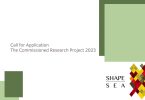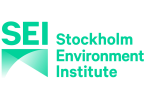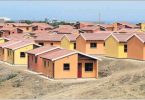What are SHAPE-SEA’s Five Research Themes? Your proposed research must cover at least of the following themes:
- ASEAN and Human Rights
- Business Accountability
- Peace and Security
- Governance and Justice
- Academic Freedom
Who are eligible to apply for the grants?Academics and researchers affiliated with an academic institution or a university-based organisation based in Southeast Asia (ASEAN-member countries and Timor-Leste) who are interested to conduct research on any human rights and/or peace issues in the region. Academics can either be working full time or part time with the affiliated institution.MA and PhD students studying in an academic institution based in Southeast Asia whose thesis is on a topic related to human rights and/or peace in the region are also encouraged to apply.
- MA (One Year): Not exceeding 102,000 THB
- PhD (One Year): Not exceeding 238,000 THB
- Small (One Year): Not exceeding 170,000 THB
- Medium (One to Two Years): Not exceeding 680,000 THB
- Regional (Two Years): Not exceeding 2,040,000 THB
I am a non-Southeast Asian academic/student/researcher affiliated with an academic institution based in Southeast Asia. Am I eligible to apply?Yes. As long as you get support from your academic institution and that your research proposal is on human rights and/or peace in Southeast Asia, then you can apply for the grant.I am a Southeast Asian academic/student/researcher based outside Southeast Asia. Am I eligible to apply?No. One of the objectives of the research grant is to strengthen capacities of the researcher ™s host academic institution/s. I applied to the SHAPE-SEA research grants programme previously, can I still apply? Yes, as we see it as a continuing process of learning.I am not affiliated with any academic institutions based in Southeast Asia (freelance researcher or NGO), Am I eligible to apply?Not as a lead researcher, but you may be part of a group research as a member.Can I submit more than one research proposal?Yes, but please note that only one project under your name will be approved by the Selection Committee.I am not affiliated with an academic institution that deals directly with human rights and/or peace. Can I still apply for a research grant?Yes! We encourage researchers from other academic disciplines to do research on human rights and/or peace to bring in new approaches and perspectives.I am confused about which category I should put my research under. Please help clarify. The different research grants are as follows:
| MA Thesis Support | Support for data collection and writing for MA Thesis. |
| PhD Thesis Support | Support for data collection and writing for PhD Thesis/Dissertation |
| Small Grants | Support for small scale (local or community sites or single country) research |
| Medium Grants | Support for big scale research on an issue in one country or research involving case studies based in two countries. (Timeframe: 1-2 years) |
| Regional Grants | Support for research involving two or more Southeast Asian countries. It is expected that two or more academic institutions collaborate for the research project. (Timeframe: 1-2 years) |
I am currently supported by another scholarship or grants programme. Can I still apply for the grant? The Selection committee will have to assess your current status. It is key that you specify the nature and purpose of the existing grant that is awarded to you because we will not be supporting research that is already being funded by another organization or institution. I would like to conduct my research in my local language. Is this possible?SHAPE-SEA provides grants for MA Thesis, PhD and Small Grants for research conducted in Khmer, Myanmar, Lao and Tieng Viet. Please remember that concept notes, research proposals, progress reports and summary of findings submitted to SHAPE-SEA have to be written in English.Will the amount stated in my proposal be automatically approved by the Committee?Not necessarily. The Selection Committee will carefully assess your proposal and finally decide on the amount awarded for your research.Who consists of the Selection Committee?Members of the Selection Committee include experts and emerging academics, and members of civil society who have been involved in research and advocacy work on human rights and/or peace in the region.How long is the Selection Process?Due to the large number of applications and a rigorous review process, it takes 3-4 months for a decision to be rendered. The Selection Committee releases the final list of grantees every December of each year. All grantees are therefore expected to start their research by January 2017.Phase one will entail the assessment of all concept note-applications and shortlisting of selected applications. Phase two will include writing of full proposal, evaluation of proposals and finalisation of selected grantees.Are there any rules about using the SHAPE-SEA research grants?Yes, SHAPE-SEA has a finance policy that each researcher has to abide by. Please download the document and read it carefully.Please note that, a few weeks after the announcement of results, all selected grantees (lead researchers) would be required to attend SHAPE-SEA’s Academic Research Workshop. This will be a chance for all to meet and to learn about human rights and/or peace research methodologies, frameworks and writing. After the workshop ends, contract signing between the lead researcher and SHAPE-SEA representative will take place. If you have other inquiries and need any clarifications, please contact Mr. Joel Mark Barredo at shapesea.rgp@gmail.com.






